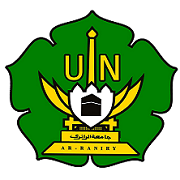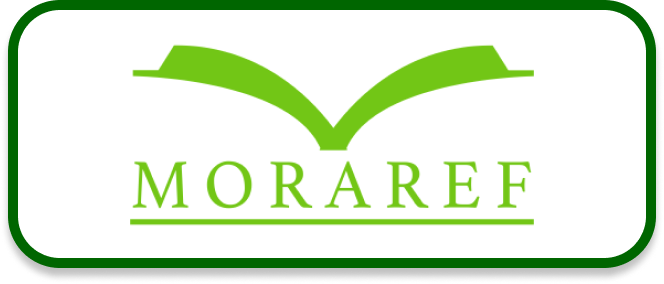-
- ARTICLE TEMPLATE
The Role of Parents in Providing Lessons and Sermons on Islamic Educational Ideas from The Perspective of Children in Jordan
Abstract
The study aimed to identify the degree of Parents’ practice of methods of setting examples, lessons, and sermons included in Islamic educational thought from the point of view of university children. This is related to some variables, such as gender, academic specialization, and stage of study, where the researcher followed the Descriptive analytical method. By applying the questionnaire consisting of (15) items, which served as a tool for the study and which was applied to (2500) male and female students from various Jordanian universities in the second semester of the academic year (2023/2024), the study concluded, after conducting appropriate statistical treatments, to the level of parents’ practice of educational methods in general. He came with a degree high on the scale as a whole, with an arithmetic mean of (3.94) and a standard deviation of (0.64). The results also showed that there were no statistically significant differences attributable to the variables of the study, namely the variables of gender (males, females), the variable of the type of student’s academic specialization (scientific, humanities), and the academic stage variable. For students (intermediate diploma and bachelor’s degree). Referring to research findings, it shows that parents have a significant role in providing learning and sermons, guiding them in learning so that children are more focused. Parents use effective advice in the form of short sentences but full of deep meaning.
Full Text:
PDFReferences
Abdullah, Y. “Educational methods derived from the Sunnah prophetic,” College Magazine Education 25, No. 6 (2014).
Abu Ghada, A. The Messenger, The Teacher, and His Methods of Teaching, 3rd edition, Beirut: Library Islamic Publications, 2013.
Abubakar, Bahrun, et.al., “Parenting Education in Islamic Families within the Framework of Family Resilience in Aceh, Indonesia,” Samarah: Jurnal Hukum Keluarga dan Hukum Islam 7, No. 2 (2023). DOI: http://dx.doi.org/10.22373/sjhk.v7i2.17901.
Al-Ajami, M. Islamic Education, Principles and Applications, ed. 1, Riyadh: International Publisher House, 2016.
Al-Aqeel, A. Islamic Education: Its Concept, Characteristics, Sources, Origins, Applications, educators, 4th edition, expanded and revised, Riyadh: Al-Rushd Library, 2014.
Al-Azmi, B. “Use Corporal Punishment as A Means Educational Study Between Theory and Practice From The Perspective of Islamic Educational thought,” Journal of the Faculty of Education 21, No. 82 (2009). 1-44.
Al-Haqil, S. Islamic Education, Beirut: Dar Al-Fikr, Edition 2 (2016).
Al-Jalhawi, H. “Educational Principles, Methods, and Teaching Aids Used in The Holy Qur’an and The Sunnah,” Al-Andalus Journal for Humanities and Social Sciences 9, No. 5 (2014).
Al-Khathami, M. Islamic Education Methods and Their Educational Applications Within The School Environment, a dissertation Ph.D Unpublished Omdurman Islamic University, College of Education, Sudan, 2023.
Al-Mihdhar, R. “Educational Methods in Islamic Educational Thought And The Degree To Which Parents Practice Them From The Children's Point of view,” Journal of the College of Education 37, No. 11 (2021). 146-185. doi: 10.21608/mfes.2021.206427.
Al-Muhailbi, B. Introduction to Islamic Educational Thought, 1st edition, Kuwait: Al-Falah Library, 2014.
Al-Rashdan, A. Islamic Educational Thought, Jordan: Dar Wael, 2013.
Al-Rubaie, B. “Educational methods in the Holy Qur’an and the Sunnah of the Prophet,” Journal of Educational and Psychological Research 48, No. 53 (2015).
Al-Saidi, F. Prophetic Educational Methods Used in Guidance and Modification The Behavior and How To Activate it With Secondary School Students For Boys, unpublished Master’s thesis, Umm Al-Qura University, College of Education, Makkah Al-Mukarramah, 2018.
Al-Samalouti, N. Building an Islamic Society, 3rd edition, Dar Al-Shorouk for Publishing, Distribution and Printing, 2019.
Al-Zahrani, N. Gradual methods in Islamic Education and Its Applications at Home and the school, Master's thesis Published, Umm University villages, College Education, Department of Islamic and Comparative Education, Mecca, 2019.
Ali, A. Modification methods the behavior Derived from the Holy Qur’an and its educational applications, Research of the Education through the Qur’an Forum -Methods and Experiments, Umm Al-Qura University, Mecca, Folder 4 (2014).
Attia, I. Islamic Education, its Sources and Applications, 3rd edition, Riyad: Library Al Rushd, 2013.
Azizah, Nur, et.al., “The Role of Parents in Implementing the Post-School Transition,” Jurnal Ilmiah Peuradeun 12, No. 1 (2024). DOI: https://doi.org/10.26811/peuradeun.v12i1.961
Bahri, Samsul, et.al., Father’s Role and Character Education: A Reflective Analysis of The Qur’anic Stories,” Jurnal Ilmiah Islam Futura 24, No. 1 (2024). DOI: http://dx.doi.org/10.22373/jiif.v24i1.13785.
Bran, L. The degree of the Palestinian Family’s Practice of Educational Methods Included in Islamic Educational Thought and Ways to Develop them, unpublished master’s thesis, Islamic University, College of Education, Gaza, 2013.
Caliph, H., Hashim, K. Classes in Teaching Islamic Education, Riyadh: Al-Rushd Library, 2015.
Hamad, L. Islamic Educational Thought in Science, Education, and Guidance. Diyala: Arts Press, 2018.
Ikhram Ikhram, et.al., “Taghyir Within Character Building of The Islamic Traditional School Students in Aceh Besar,” Jurnal Ilmiah Islam Futura 23, No. 2 (2023). DOI: http://dx.doi.org/10.22373/jiif.v23i2.17167
Ismaiel, M, Studies In the Sciences of the Qur’an Publisher: Dar Al-Manar, Second Edition, 2019.
Kazem, A. “Educational Methods in Thought Islamic,” Studies Magazine Educational 7, No. 25 (2013).
Khattabah, A. “Determinants of Islamic Educational Thought and Their Repercussions,” Al-Manara Magazine 21, No. 2 (2014).
Mahmud, Salami, et.al., “Building Students’ Character Based on Maqāṣid al-Sharī'ah: Perspectives of Parents, Teachers, and Community Members in Banda Aceh,” Samarah: Jurnal Hukum Keluarga dan Hukum Islam 7, No. 3 (2023). DOI: http://dx.doi.org/10.22373/sjhk.v7i3.17708.
Namori, N. “Child Raising Methods With Wisdom in Light of the Prophet’s Sunnah, Hadith Magazine,” International Islamic University PsilangoR Institute of Prophetic Hadith Studies 3, (2011).
Putra, Purniadi, et.al., “The Use Malays-Sambas Expressions in Developing Character Education in Sambas Primary Madrasah in Millennial Era,” Jurnal Ilmiah Peuradeun 9, No. 2 (2021). DOI: https://doi.org/10.26811/peuradeun.v9i2.482.
Said, B. Family Upbringing Methods and Their Relationship To The Level of Parental Education, unpublished master’s thesis, College of Education, Ibn Rushd, University of Baghdad, 2018.
Tarabishi, A. Educational Methods in Dealing With Children and Their Applications In The Primary Stage, unpublished master’s thesis, Umm Al-Qura University, College of Education, Mecca, 2017.
Tiqrin, N. “The Most Important Educational Methods Affecting the Child’s Upbringing and Care According to The Islamic Approach,” Al-Hikma Journal for Educational and Psychological Studies 3, No. 6 (2014).
Wildan, Muhammad and Alimatul Qibtiyah, “Parenting Style and The Level of Islamism Among Senior High School Students in Yogyakarta,” Journal of Indonesian Islam 14, No. 1 (2020). DOI: 10.15642/JIIS.2020.14.1.187-209.
Yaljan, M. Contemporary Islamic Educational Thought, Riyadh: Dar Alam al-Kutub, 2009.
Zulfikar, Teuku and Emawati Emawati, “Islamic Education and Religiosity: Voices of the Indonesian Muslim Communities in Australia,” Ulumuna: Journal of Islamic Studies 24, No. 1 (2020). DOI: https://doi.org/10.20414/ujis.v24i1.388.
Zur Raffar, Izzah Nur Aida, et.al., “Parenting Skills According to The Islamic Perspective Towards Family Well-Being,” Samarah: Jurnal Hukum Keluarga dan Hukum Islam 5, No. 2 (2021). DOI: http://dx.doi.org/10.22373/sjhk.v5i2.9576.
DOI: http://dx.doi.org/10.22373/ujhk.v7i1.22956
Refbacks
- There are currently no refbacks.
Copyright (c) 2024 Mohammad Omar AL-Momani

This work is licensed under a Creative Commons Attribution-ShareAlike 4.0 International License.
El-Usrah: Jurnal Hukum Keluarga has been indexed by:

















